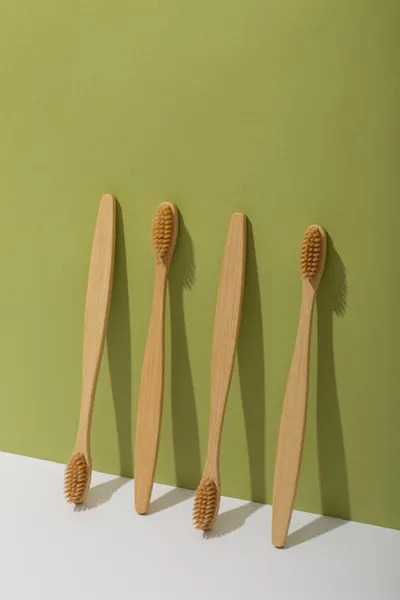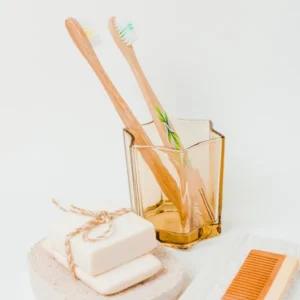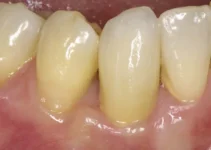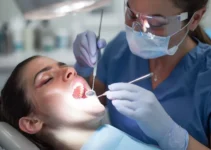Switching to a bamboo toothbrush can make a significant difference in your daily oral hygiene routine and the environment. Unlike traditional plastic brushes, bamboo toothbrushes are biodegradable, making them a sustainable alternative. Learn about how using bamboo toothbrushes can help reduce plastic waste and provide the same cleaning efficacy as conventional brushes, all while supporting a healthier planet.
Why Choose a Bamboo Toothbrush?
Switching to a bamboo toothbrush offers an array of benefits for both the environment and your oral health. While plastic toothbrushes have been the standard for decades, their long-term impact on the planet calls for a more sustainable option. Bamboo toothbrushes serve as an excellent eco-friendly alternative, gaining popularity for their biodegradability and minimal carbon footprint.
Additionally, bamboo toothbrushes are known for their natural antimicrobial properties, which can make them a more hygienic choice compared to conventional plastic toothbrushes. They are designed to be just as effective in removing plaque and maintaining oral hygiene, without causing harm to the environment. Choosing a bamboo toothbrush is not only a personal health decision but also a step toward a greener future.
Eco-Friendly Alternative
One of the most compelling reasons to switch to a bamboo toothbrush is its minimal environmental impact. Traditional plastic toothbrushes can take hundreds of years to decompose, contributing significantly to landfill waste and marine pollution. In contrast, bamboo toothbrushes are made from sustainable materials that decompose naturally, making them a much more eco-friendly choice.
Furthermore, the production process for bamboo toothbrushes generally has a lower carbon footprint compared to plastic ones. Bamboo grows rapidly and requires minimal resources, such as water and pesticides, for cultivation. This makes it a renewable resource that can be harvested sustainably without depleting the ecosystem.
By opting for a bamboo toothbrush, you are contributing to a reduction in plastic waste and supporting sustainable farming practices. It’s a small change in your daily routine that can have a significant positive impact on the environment.
Biodegradable Materials
The primary material used in bamboo toothbrushes is, unsurprisingly, bamboo—a biodegradable and sustainable resource. Bamboo can decompose naturally within a short period under the right conditions, unlike plastic, which can take hundreds of years to break down. This makes bamboo an excellent choice for reducing overall waste.
In addition to the bamboo handle, many brands use plant-based bristles made from castor oil or other sustainable materials. These bristles are also biodegradable, although they might take slightly longer to decompose compared to the bamboo handle. Some brands also offer compostable packaging, further reducing the environmental footprint.
Moreover, bamboo toothbrushes often come with minimalistic and recyclable packaging, reducing even more waste. This commitment to using biodegradable and recyclable materials ensures that every part of the toothbrush lifecycle is environmentally responsible.
Switching to a bamboo toothbrush is a simple yet effective way to make a positive environmental impact. For more insights into sustainable living and oral health, consider reading our other articles on eco-friendly dental care products and practices.
Health Benefits of Bamboo Toothbrushes
The transition from traditional plastic toothbrushes to bamboo toothbrushes is not just a trend; it’s a shift towards a more sustainable and health-conscious lifestyle. Bamboo toothbrushes offer a myriad of health benefits that can enhance your oral hygiene routine. In this article, we delve into the various advantages of using bamboo toothbrushes.
From their antimicrobial properties to being gentle on gums, bamboo toothbrushes stand out in multiple ways. Moreover, they help reduce chemical exposure, making them a safer choice for your daily dental care. Let’s explore these health benefits in detail.
Antimicrobial Properties
One of the standout features of bamboo toothbrushes is their natural antimicrobial properties. Bamboo contains a substance called “bamboo kun,” which has shown to have antibacterial and antifungal effects. This means that your bamboo toothbrush is inherently more resistant to bacterial growth compared to plastic ones.
Research shows that antimicrobial properties can significantly reduce the risk of bacterial infections in the mouth, which can lead to issues like gingivitis and periodontitis. By using a bamboo toothbrush, you are essentially lowering the risk of harmful bacteria accumulating on your brush.
In addition, these antimicrobial properties contribute to making your toothbrush more hygienic. You can feel more confident knowing that your oral hygiene tool is actively fighting off microbes between uses.
Less Chemical Exposure
Bamboo toothbrushes are typically made from natural materials and do not involve the use of harmful chemicals commonly found in plastic toothbrushes. Traditional toothbrushes often contain BPA (Bisphenol A), a chemical that has raised health concerns, especially when it comes to long-term exposure.
Using a bamboo toothbrush reduces your exposure to such chemicals, making your oral care routine healthier. Additionally, the bristles of many bamboo toothbrushes can be made from plant-based materials, further minimizing chemical interaction.
Reducing chemical exposure is particularly beneficial for sensitive individuals, including children, who are more susceptible to the adverse effects of these chemicals. Switching to bamboo toothbrushes can provide peace of mind for families concerned about the impact of synthetic materials.
Gentle on Gums
Another significant health benefit of bamboo toothbrushes is that they are generally gentler on gums. The bristles are designed to be soft yet effective in removing plaque and debris from your teeth. This is crucial for maintaining healthy gums and preventing gum recession. Gentle brushing is important because aggressive brushing can lead to the erosion of enamel and damage to gum tissue. Bamboo toothbrushes, with their soft bristles, offer an effective cleaning without harming these sensitive areas.
Moreover, the handle of a bamboo toothbrush provides a comfortable grip, reducing the chances of applying excessive force while brushing. This ergonomic design helps in maintaining the right amount of pressure, ensuring a safer and more effective brushing experience.
In conclusion, bamboo toothbrushes offer several health benefits that make them a superior choice for your oral hygiene routine. Their antimicrobial properties, reduced chemical exposure, and gentle effect on gums collectively contribute to better overall dental health. Consider switching to bamboo toothbrushes and experience these benefits firsthand. For more insightful articles on oral health, be sure to explore the rest of our content.
Environmental Impact Compared to Plastic Toothbrushes
In recent years, the shift towards more environmentally friendly dental care products has led to the rise of alternatives to traditional plastic toothbrushes. A chief concern driving this trend is the significant environmental impact of plastic waste. The production and disposal of plastic toothbrushes contribute to various ecological issues, including landfills overflowing with non-biodegradable materials and pollution of marine ecosystems. Understanding the environmental impact of plastic toothbrushes compared to sustainable alternatives is crucial for making informed choices.
By choosing eco-friendly toothbrush options, consumers can help mitigate these adverse effects, contributing to a healthier planet. Here, we will explore key areas where sustainable toothbrushes outperform their plastic counterparts, focusing on the reduction of plastic waste, the use of sustainable resources, and the overall lower carbon footprint.
Reduction in Plastic Waste
Plastic toothbrushes are typically made from polypropylene and nylon, materials that take hundreds of years to decompose. According to the American Dental Association, it is recommended to replace toothbrushes every three to four months, meaning a single individual could dispose of approximately four toothbrushes per year. With millions of users, this translates to billions of plastic toothbrushes ending up in landfills annually.
Using environmentally friendly toothbrushes, such as those made from bamboo or other biodegradable materials, significantly reduces this plastic waste. Bamboo toothbrushes, for example, decompose much more quickly than plastic, often within six months under the right conditions. By switching to biodegradable options, not only is the volume of waste reduced, but the long-term environmental damage is also minimized.
Sustainable Resource
Bamboo toothbrushes are a popular sustainable alternative, as bamboo grows rapidly and requires minimal resources to cultivate. Unlike plastic, which relies on fossil fuels, bamboo is a renewable resource that can be harvested in a manner that is environmentally sustainable. Additionally, bamboo production often supports local economies, particularly in regions where it is a native species.
Moreover, bamboo cultivation does not necessitate the use of pesticides or fertilizers, making it a more eco-friendly choice. Its natural antibacterial properties also mean that fewer chemicals are required during the production process, further reducing the environmental impact. This makes bamboo a more sustainable and greener option compared to traditional plastic.
Lower Carbon Footprint
The production of plastic toothbrushes is energy-intensive and involves the release of greenhouse gases at various stages, from extraction of raw materials to manufacturing and transportation. On the other hand, sustainable toothbrushes like those made from bamboo have a significantly lower carbon footprint. The growth cycle of bamboo absorbs more carbon dioxide than is produced during the manufacturing of bamboo toothbrushes.
Furthermore, many bamboo toothbrush manufacturers prioritize eco-friendly production processes. This includes using renewable energy sources, minimizing waste, and reducing emissions throughout the supply chain. Consequently, choosing bamboo toothbrushes not only lessens the immediate environmental burden but also supports broader efforts to combat climate change.
By opting for sustainable dental care products, individuals can contribute to a reduced carbon footprint and a healthier planet. If you found this article insightful, be sure to check out our other articles on sustainable living and eco-friendly dental care practices.
How to Care for Your Bamboo Toothbrush
A bamboo toothbrush is an eco-friendly alternative to traditional plastic toothbrushes. However, to ensure its longevity and maintain optimal hygiene, it’s crucial to care for it properly. In this guide, we will cover some essential tips on how to care for your bamboo toothbrush.
Adopting the right cleaning techniques and storage practices will not only prolong the life of your bamboo toothbrush but also enhance your overall oral hygiene experience. Let’s delve into these aspects in detail.
Proper Cleaning Techniques
Cleaning your bamboo toothbrush correctly is essential to keep harmful bacteria at bay. After each use, rinse the bristles thoroughly with warm water to remove any toothpaste and debris. This step is crucial as it prevents residue buildup, which can harbor bacteria.
For a deeper clean, soak the bristles in a mixture of water and white vinegar for about 15 minutes once a week. This natural solution is effective in killing germs and maintaining the bristle’s integrity. Be sure to rinse the toothbrush thoroughly after soaking to remove any vinegar taste.
Another effective method is to dip the bristles in mouthwash for a few minutes. This not only kills bacteria but also adds a fresh flavor to your brush. However, avoid boiling water or placing your bamboo toothbrush in the dishwasher, as excessive heat and moisture can cause the bamboo to crack or splinter.
Storage Recommendations
Proper storage of your bamboo toothbrush is just as important as cleaning it. Always store your toothbrush in an upright position to allow the bristles to dry completely. This minimizes the risk of bacterial growth, which thrives in moist environments. A well-ventilated holder is ideal for this purpose.
Avoid leaving your toothbrush in a closed container or cabinet, as lack of airflow can lead to mold formation. If you must store it in a travel case, make sure the case has ventilation holes to allow for adequate drying. Regularly inspect your bamboo toothbrush for any signs of wear and tear, such as splintering of the handle or fraying of the bristles. It’s generally recommended to replace your toothbrush every three months or sooner if it shows significant signs of wear.
By following these simple yet effective care tips, you can ensure the longevity of your bamboo toothbrush while maintaining optimal oral hygiene. For more insights into eco-friendly dental care practices, be sure to explore our other articles.
Frequently Asked Questions about Bamboo Toothbrushes
If you’re considering switching to a bamboo toothbrush, you may have some queries about its benefits and usage. Below is a commonly asked question to help you make an informed decision.
How does using a bamboo toothbrush benefit my oral health and the environment?
Bamboo toothbrushes provide all the cleaning efficiency of traditional plastic brushes but with added environmental benefits. The handles are biodegradable and made from bamboo, a sustainable resource that grows quickly with minimal water and no harmful pesticides. This reduces your carbon footprint and plastic waste. From an oral health perspective, bamboo toothbrushes are gentle on the gums but effective in removing plaque, making them a great choice for both health and sustainability.

My name is Salman Kapa, a 73-year-old expert in bone regeneration and dental implantology. With decades of experience in the field, I am dedicated to advancing our understanding of oral health and hygiene. Through my research and writing, I aim to contribute to the development of innovative solutions in dental care.




